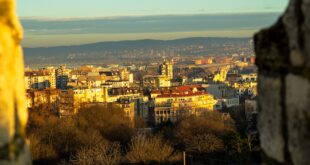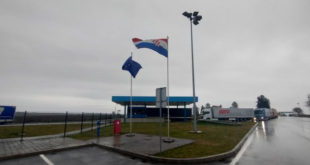 Exit polls from Croatia’s presidential election run-off suggest that Social Democrat Ivo Josipovic is in the lead.
Exit polls from Croatia’s presidential election run-off suggest that Social Democrat Ivo Josipovic is in the lead.
He won December’s vote but failed to secure an outright majority, prompting a second round against challenger Milan Bandic, the mayor of Zagreb.
Voting closed at 1900 (1800 GMT) with first results expected about 2300 GMT.
Croatia’s president has little power to direct policy, so the election campaign has been focused on personality, rather than ideas.
Left-wing Mr Josipovic is a mild-mannered classical music composer and doctor of law, credited for his untarnished background but criticised for lacking charisma.
He has promised voters he will launch an “uncompromising fight against corruption” if elected.
Mr Bandic, is a long-distance runner who says he is close to the people, but has been hit by corruption allegations.
He has urged Croatians to “vote for a man and not for a party”.
As he cast his vote in Zagreb on Sunday, he said he had “no doubt Croatian people, citizens of Croatia will choose the best candidate”.
Corruption has been the dominant theme in the campaign, with Croatia determined to clean up its image in order to gain EU membership by 2012.
Tihana Colak, a 27-year-old voting in Zagreb, said she was backing Mr Josipovic because he was “an educated man and he’s clear of corruption”.
She said that Mr Josipovic had the “credibility to represent Croatia in the world as a civilized and decent country”.
Disenchantment
Also of concern to Croatian voters is the impact of the recession.
The country’s economy is expected to shrink by almost 6% in 2009 and show barely any growth this year.
Unemployment stands stubbornly high at around 16%.
“We have one candidate who is a hard worker, that’s Bandic, and then we have a man who is highly educated, that’s Josipovic,” said Miljenko Jovic, a pensioner voting in Zagreb.
“If we could make a combination of the two that would be perfect, but since I come from working background I support the worker”, he told Reuters.
Our correspondent says there is a general mood of public disenchantment with politics in Croatia, leading to the lowest ever turnout in the first round of this presidential election at just 44%.
Both candidates have led an increasingly aggressive end to the campaign and have appealed to voters both in Croatia and the over 250,000 Croats in Bosnia to cast their ballot, he adds.
They will almost certainly be electing the head of state of the European Union’s 28th member.
 Eurasia Press & News
Eurasia Press & News


